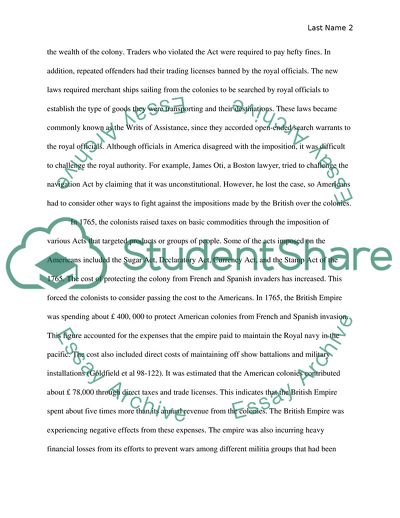Cite this document
(American Revolution Essay Example | Topics and Well Written Essays - 2000 words, n.d.)
American Revolution Essay Example | Topics and Well Written Essays - 2000 words. https://studentshare.org/history/1777279-the-breakdown-of-relations-between-the-colonies-and-great-britain-between-1763-and-1776-that-led-to-the-american-revolution
American Revolution Essay Example | Topics and Well Written Essays - 2000 words. https://studentshare.org/history/1777279-the-breakdown-of-relations-between-the-colonies-and-great-britain-between-1763-and-1776-that-led-to-the-american-revolution
(American Revolution Essay Example | Topics and Well Written Essays - 2000 Words)
American Revolution Essay Example | Topics and Well Written Essays - 2000 Words. https://studentshare.org/history/1777279-the-breakdown-of-relations-between-the-colonies-and-great-britain-between-1763-and-1776-that-led-to-the-american-revolution.
American Revolution Essay Example | Topics and Well Written Essays - 2000 Words. https://studentshare.org/history/1777279-the-breakdown-of-relations-between-the-colonies-and-great-britain-between-1763-and-1776-that-led-to-the-american-revolution.
“American Revolution Essay Example | Topics and Well Written Essays - 2000 Words”. https://studentshare.org/history/1777279-the-breakdown-of-relations-between-the-colonies-and-great-britain-between-1763-and-1776-that-led-to-the-american-revolution.


